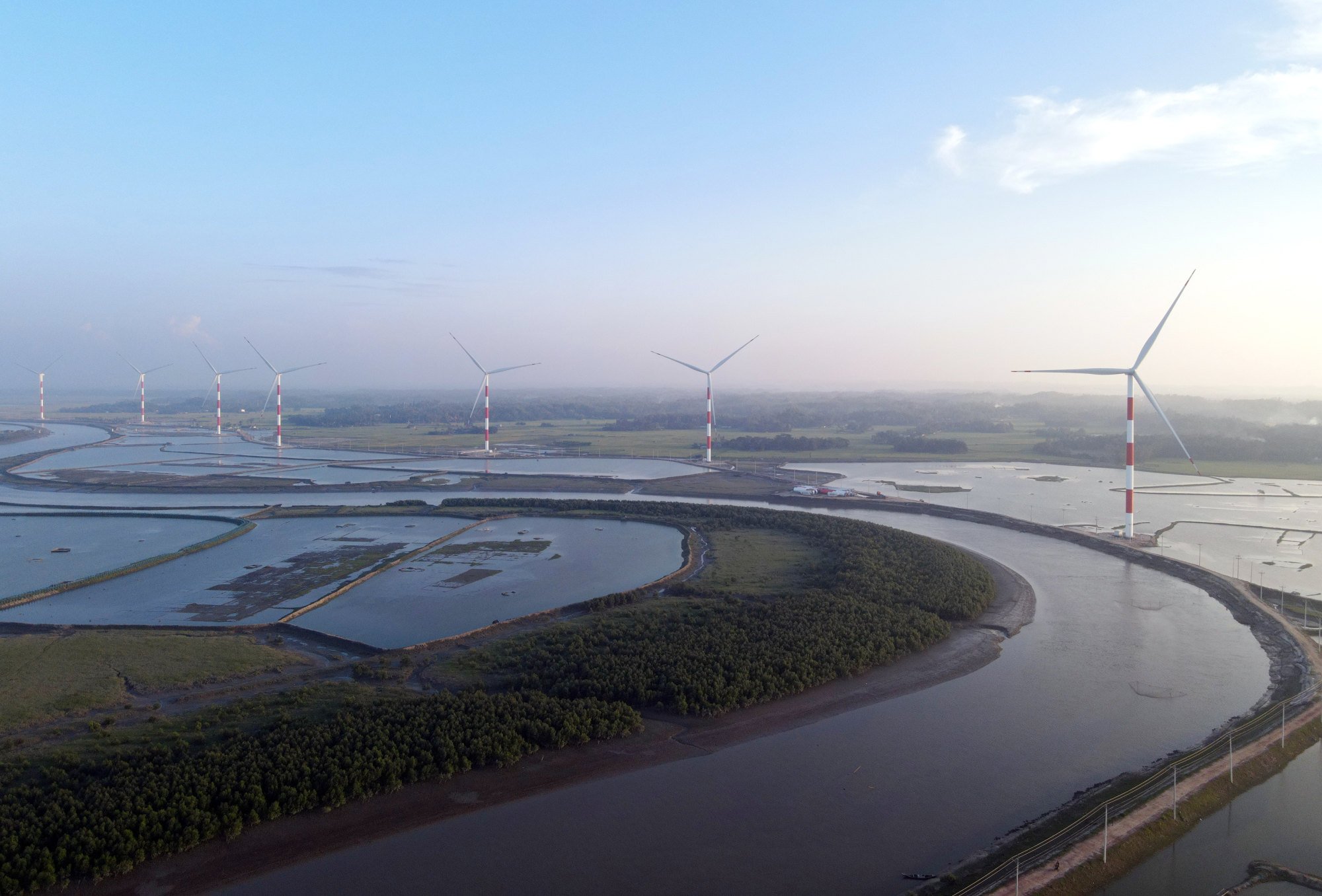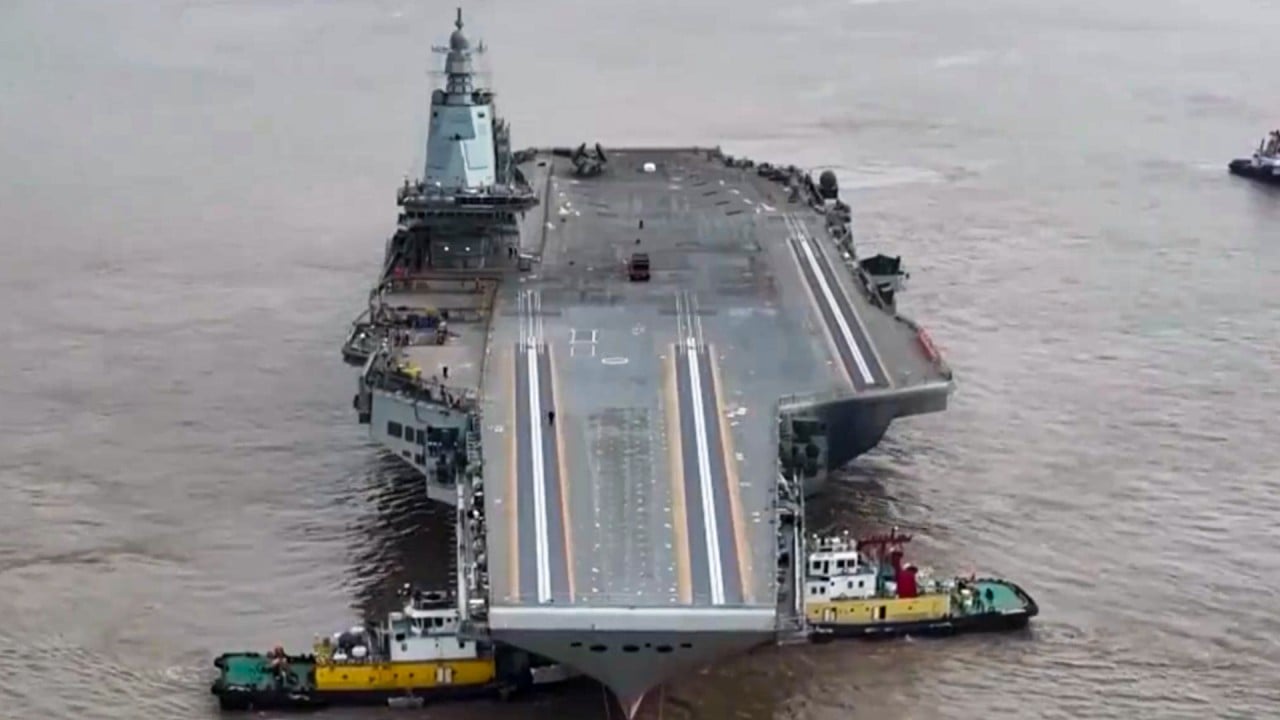Analysts say India is unlikely to be “overly concerned” for the moment as the facility mostly reflects Bangladesh’s desire to strengthen its naval ambitions, but they caution that New Delhi ought to be watchful of a growing Chinese presence.
In addition to enhanced influence, China could get a new base for its submarines in the Bay of Bengal out of its closer defence ties with Bangladesh, Indian media speculated last month citing the satellite photo.

Troy Lee-Brown, a research fellow at the University of Western Australia’s Defence and Security Institute, said Bangladesh’s navy was building the dry dock at the new Sheikh Hasina submarine base in Cox’s Bazar.
The US$1.21 billion facility, which was inaugurated by Bangladesh’s Prime Minister Sheikh Hasina in March last year at a ceremony attended by Chinese officials, was being constructed with “considerable assistance” from Beijing, he said.
Hasina said at the inauguration that the base would strengthen Bangladesh’s “capacity to protect its maritime boundary”. It will be capable of hosting six submarines and eight warships at a time, The Dhaka Tribune reported last year, allowing for “safe and swift movement of the submarines in case of emergency”.
The two submarines that Bangladesh bought from China for US$205 million in 2016 are also expected to be serviced at the base.
Nilanthi Samaranayake, a visiting academic with the United States Institute of Peace think tank’s South Asia programmes, said Bangladesh had been sourcing affordable naval assets from China since the 1980s.
“Dhaka has sought to expand its navy” and hoped to add to the two Chinese submarines it currently operates, she said.

Bangladesh aspired to develop its naval reach in the Bay of Bengal “and potentially beyond”, said David Brewster, a senior research fellow with the National Security College at Australian National University who specialises in Indian Ocean and Indo-Pacific maritime security.
“The acquisition of a potent submarine capability by the Bangladesh navy will likely take many years,” he said.
“[This] is just one step in the development of Bangladesh as a significant regional power that could play an increasingly valuable role in the security of the Indian Ocean.”
Adding that this long-term goal should be welcomed, Brewster said there had been no indications that Hasina’s government had “any intention of allowing the Chinese navy to use this facility”.
India’s concerns
India was likely “not overly concerned” by Bangladesh’s construction of a new naval dock given the two countries’ strong security and defence ties, Lee-Brown said – citing recent joint military exercises and training, and humanitarian assistance and disaster-relief programmes.
Bangladesh’s Foreign Minister Hasan Mahmud said in February that Dhaka will continue to buy defence equipment from India, includes a floating dock, logistics ship and oil tanker for its navy.
Delhi would have some concern about possible future Chinese access to the base
“But Delhi would have some concern about possible future Chinese access to the base” for the maintenance of its warships and submarines “in the strategic Bay of Bengal”, Lee-Brown said.
The Bay of Bengal, one of the busiest shipping routes in the world that more than 40,000 vessels cross annually, serves as a crucial maritime gateway between East and West.
Noting Delhi’s “clear naval advantage in the Indian Ocean over China”, Lee-Brown said Beijing needed to operate in the region under “considerable logistical constraints, particularly in times of heightened tensions”.
“If the Chinese navy gains access to bases such as the new Sheikh Hasina submarine base at Cox’s Bazar for sustainment and maintenance of its boats, it slightly eats away at India’s enormous geographical advantage in the Indian Ocean,” he said.
Though Chinese security scholars have spoken about a future Chinese fleet in the Indian Ocean, “one has not yet emerged”, Prashant Hosur Suhas an international-relations professor at Clarkson University in the US; and Christopher K. Colley, an international security studies professor at the US Air War College, wrote in article published by strategic, defence and foreign affairs platform War on the Rocks on May 7.
“Any Chinese armada in the region would have to deal with the tyranny of geography, which provides India with a home-field advantage,” they said.
China’s emerging aircraft carrier battle groups were “not yet ready for engagements with capable adversaries and are likely at least a decade away from being able to conduct effective combat missions”, they said.
The United States Institute of Peace’s Samaranayake said India already had a “robust awareness” of maritime activities in the Bay of Bengal through assets such as its eastern naval command in Andhra Pradesh state’s Visakhapatnam and joint military outpost in the Andaman and Nicobar Islands.
“[Indian Prime Minister] Narendra Modi’s administration will continue to actively defend India’s security interests in the Bay of Bengal, while drawing on the relationship it has cultivated with the Sheikh Hasina administration over the past decade,” she said.


